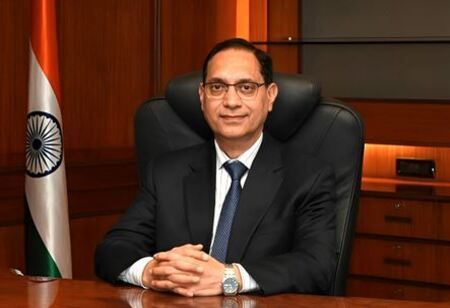
SEBI Chief Urges Redefining the Role of Independent Directors


Tuhin K. Pandey, the chairman of SEBI, urged that the function of independent directors be redefined. Additionally, he emphasized that compliance must be ingrained in culture rather than only adhering to rules.
He added, "We need to redefine the role of independent directors," when speaking at the Institute of Directors' Annual Directors Conclave. We can no longer regard them as friendly critics or honorary appointees. They need to be seen as custodians of accountability and treated as such. He enumerated three adjustments for this: psychological safety, direction, and selection.
Pandey advised going beyond well-known circles and networks for selection. He stated, "Let's draw from a variety of experiences, sectors, younger professionals, and regional voices."
Also Read: M S Swaminathan Leaves behind an Evergreen Legacy of a Safer and Hunger-Free Future
According to him, many directors are well competent yet uninformed about new dangers, including as cyberthreats, AI governance, or ESG disclosures. He stated that orientation need to be continuous rather than a one-time induction.
He proposed that independent directors should feel free to question and dissent if the information is not reliable in order to ensure psychological safety.
“Because a board that never disagrees is not aligned — it’s asleep. Divergent views when rooted in purpose and mutual respect strengthens the board. They test assumptions, lead to deeper discussions and a constructive decision making,” Pandey said.
Also Read: Metamorphosis through Technology in the Insurance Industry in 2023
For shaping the ‘Tomorrow’s Board’, he insisted on shifting from compliance to culture. “Governance is no longer just about policies. It’s about tone, about behaviour and about values in action,” he said.
He also asked whether the board discusses succession planning or just CEO remuneration, whether it looks into culture or leaves that to HR, and whether it examines trends of whistleblowers with interest or defensiveness.
“Because what gets discussed signals what gets valued. We must begin treating culture as a board-level responsibility - just like financials, risk, or strategy,” SEBI Chairman said.
He explained that during the previous 20 years, SEBI has gradually strengthened the corporate governance framework for listed companies. Since the Companies Act of 2013 was revised and listing obligations were codified in the SEBI LODR (Listing Obligations and Disclosure Requirements) Regulations, we have established comprehensive guidelines for the independence, makeup, and duties of boards and their committees, including risk management, audit, nomination, and compensation committees.
The SEBI Chief advocated for diversity that transcends demographics, stating that gender diversity, regional representation, and generational diversity are all extremely important.
But “what we need more of is cognitive diversity. We must ask - Do we have enough contrarian thinkers in the room? Do we have people who see risk differently - not more fearfully, but more perceptively? Because true board strength may not necessarily come from agreement. It may instead come from friction - respectfully managed, optimal and constructive,” he said.
Pandey emphasized that a director or independent director has several opportunities and responsibilities in the face of a changing environment. The reality, he said, is that while regulators can require structure, they cannot require bravery. Boards are the only ones that can achieve it. Only directors have the power to influence the caliber of questions posed and the lucidity of responses required.
And “this is not just about risk avoidance. It’s about strategic edge. Boards that reflect, challenge, and learn - can outperform. Boards that listen deeply - retain trust during crisis. And boards that govern with integrity - don’t just survive. They lead,” he said.